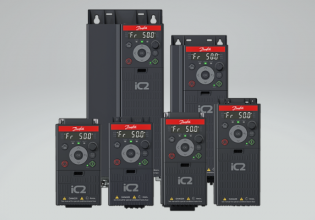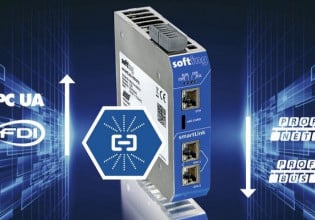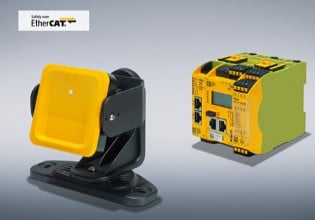Hi. First time poster here so sorry.if posted in wrong section.
I'm looking for some advice and feedback on any instrument technicians experiences in Australia with regards their licencing regulations, especially those who hold restricted electrical licence for instrumentation.
For background I'm have a Bachelors in Instrumentation Engineering back in Ireland and worked there for 2 years in technician roles with several E & I companies on different pharmaceuticals.
This was some install on new factories and some work on existing plants. Work was mainly commissioning. Consisted of terminating instruments, configuring, hot loop testing, fault finding, initial calibration and annual maintenance calibration. All ELV work basically.
There was no issue with me doing this work as I was not going near the Electrical side of things, I.e. not terminating or testing any power cables.
However in Australia I've found that nearly every place wants you to hold a full electrical licence, regardless of the advertised job being all ELV, calibration and commissioning of instruments.
I recently acquired what's called an Australian restricted electrical licence for instrument technicians. This allows you to work on up to 50V Ac and 120 V dc. It doesn't allow me to install ( can't strip a new cable and terminate ), and I can't alter wiring ( can't rearrange terminations such as terminating a Pressure Tx cable to a different pair in a marshalling cabinet if it was required ).
What it does allow me to do is disconnect/reconnect instruments in a like for like wiring manner only and I can work on them then. ( of course for a lot of calibration work, no disconnection is needed).
I've found most companies and job ads seem to be for Electrical and Instrumentation dual traders and Mandate a full sparkie licence and that they say the restricted licence isn't sufficient.
Would anyone who has this instro licence or works with someone that does be able answer me these?
1. On a new install project, where an electrician terminated an instrument, when commissioning begins, would this licence allow me to perform hot-loop testing? For example, testing a pressure Tx via connecting a hart to the Hart terminals or by 4-20mA generator to the disconnected cable?
2. What has been your experience when companies advertise for E & I techs, job specs are strictly instro, and you apply and try to explain about your restricted licence being (mostly) sufficient? I've found HR and recruitment departments particularly difficult to talk with about this as most aren't really clued in to the industry and can't see past the unticked box of whether or not an applicant has an electricians licence
I should add that in the cities, I have come across some companies that are strictly calibration. E.g. weighing scale companies or companies that go a pharmaceutical or medical equipment factory once a year and test every temperature probe they have.
These companies usually don't actually even ask for any licence at all and they seem to just be happy with my college cert and experience and ability. However the money is usually far less than with companies that do more install and commissioning projects ( E and I ). And if I'm honest, that kind of work gets quite repetive after a while.
I'm mainly looking to get into mining and/or Oil and gas type work, but I'm aware these places are probably the strictest in looking for an electrician licence so if any restricted instro licence holders could give me some feedback on how they managed and what other routes I could take I'd greatly appreciate it.
Thanks for reading. Sorry for the long post
I'm looking for some advice and feedback on any instrument technicians experiences in Australia with regards their licencing regulations, especially those who hold restricted electrical licence for instrumentation.
For background I'm have a Bachelors in Instrumentation Engineering back in Ireland and worked there for 2 years in technician roles with several E & I companies on different pharmaceuticals.
This was some install on new factories and some work on existing plants. Work was mainly commissioning. Consisted of terminating instruments, configuring, hot loop testing, fault finding, initial calibration and annual maintenance calibration. All ELV work basically.
There was no issue with me doing this work as I was not going near the Electrical side of things, I.e. not terminating or testing any power cables.
However in Australia I've found that nearly every place wants you to hold a full electrical licence, regardless of the advertised job being all ELV, calibration and commissioning of instruments.
I recently acquired what's called an Australian restricted electrical licence for instrument technicians. This allows you to work on up to 50V Ac and 120 V dc. It doesn't allow me to install ( can't strip a new cable and terminate ), and I can't alter wiring ( can't rearrange terminations such as terminating a Pressure Tx cable to a different pair in a marshalling cabinet if it was required ).
What it does allow me to do is disconnect/reconnect instruments in a like for like wiring manner only and I can work on them then. ( of course for a lot of calibration work, no disconnection is needed).
I've found most companies and job ads seem to be for Electrical and Instrumentation dual traders and Mandate a full sparkie licence and that they say the restricted licence isn't sufficient.
Would anyone who has this instro licence or works with someone that does be able answer me these?
1. On a new install project, where an electrician terminated an instrument, when commissioning begins, would this licence allow me to perform hot-loop testing? For example, testing a pressure Tx via connecting a hart to the Hart terminals or by 4-20mA generator to the disconnected cable?
2. What has been your experience when companies advertise for E & I techs, job specs are strictly instro, and you apply and try to explain about your restricted licence being (mostly) sufficient? I've found HR and recruitment departments particularly difficult to talk with about this as most aren't really clued in to the industry and can't see past the unticked box of whether or not an applicant has an electricians licence
I should add that in the cities, I have come across some companies that are strictly calibration. E.g. weighing scale companies or companies that go a pharmaceutical or medical equipment factory once a year and test every temperature probe they have.
These companies usually don't actually even ask for any licence at all and they seem to just be happy with my college cert and experience and ability. However the money is usually far less than with companies that do more install and commissioning projects ( E and I ). And if I'm honest, that kind of work gets quite repetive after a while.
I'm mainly looking to get into mining and/or Oil and gas type work, but I'm aware these places are probably the strictest in looking for an electrician licence so if any restricted instro licence holders could give me some feedback on how they managed and what other routes I could take I'd greatly appreciate it.
Thanks for reading. Sorry for the long post






